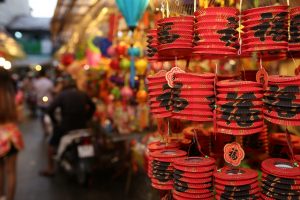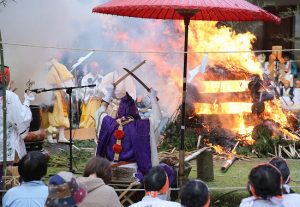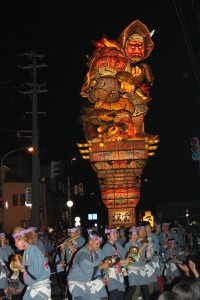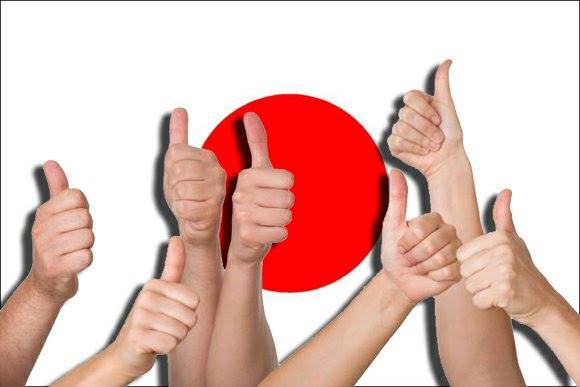JET Prefecture Round Up (February 2018)
JET Prefecture Round Up is a mosaic of events taking place in the AJET community in Japan. Compiled by Suzanne Bhagan (Tottori Prefecture).
13th Kyoto Vegans Buffet Meetup
When: February 3
Where: Kyoto Prefecture
Forget the snow! Join the vegan tribe at Vegans Cafe and make new friends!
When: February 3
Where: Tottori Prefecture
Join in the 19th Chizu Inn Yuki Matsu in rural Tottori prefecture.
When: February 3-4
Where: Shimane Prefecture
Shimane and Hiroshima AJET welcome you to shred the slopes of Mizuho Highland with them.
Niigata AJET’s Northern Snow Out
When: February 10
Where: Niigata Prefecture
Join Niigata AJET at the first annual Kaetsu region snow out.
When: February 10-13
Where: Hokkaido Prefecture
Hokkaido AJET invites all JETs to take part in Snowcation, an annual event to encourage JETs from other prefectures to visit the northern island. This year, it coincides with the Sapporo Snow Festival.
When: February 17
Where: Okayama Prefecture
Join Okayama AJET in celebrating the prefecture’s famous Saidaiji Naked Man Festival.
Shizuoka AJET Strawberry Picking and Onsen Trip 2018
When: February 17
Where: Shizuoka Prefecture
Join Shizuoka AJET in beating winter with delicious strawberries on the prefecture’s famous strawberry road and a hot soak at the onsen.
When: February 24
Where: Aomori Prefecture
Aomori AJET invites you to its final event for the school year, a Snowball inspired by Stranger Things.
AJET Block 10 & The Nagazasshi Presents: Lantern Festival 2018
When: February 24
Where: Nagasaki Prefecture
Join AJET Block 10 to celebrate a festival started by the local Chinese community to celebrate Chinese New Year.
JET Prefecture Round up! 11.06.17
By Suzanne Bhagan (Tottori Prefecture)
When: 11-12 November
Where: Gokase, Miyazaki Prefecture
Miyaki AJET invites you to spend a packed weekend in Gokase kayaking, taking in the vibrant koyo, making friends at a cabin party, and checking out Heike Matsuri!
When: 12 November
Where: Ibusuki, Kagoshima Prefecture
Kagoshima AJET is inviting all community members to finish off SDC weekend strong by hiking up one of Kagoshima’s volcanoes!
When: 12 November
Where: Nakatsu, Oita Prefecture
This autumn, join Oita AJET for a wicked biking trip on the Yabakei trail.
HAJET Book Club: The Left Hand of Darkness
When: 12 November
Where: Kobe, Hyogo Prefecture
Why not join HAJET for a chilled afternoon of discussion about books? They will be covering The Hand of Darkness by Ursula K. Le Guin.
JET Prefecture Round up 30.10.17
By Suzanne Bhagan (Tottori Prefecture)
Hey, past and present JETs! Here’s a snapshot of what’s going on in Nihon-land this week!
When: 1-3 November
Where: Onomichi, Hiroshima Prefecture
On Culture Day, head to Onomichi for its famous Betcha Matsuri. At the festival, three oni (Betcha, Soba, and Shoki) will “beat” the sickness out of you to bless you with good health for the following year! The festival also a temple walk and amazing taiko performances.
Shizuoka City Daidogei Festival
When: 2-5 November
Where: Shizuoka, Shizuoka Prefecture
Shizuoka AJET invites everyone to an annual event that features street performers from around the world juggling, dancing, and performing acrobatics, comedy, and aerial acts!
When: 3 November
Where: Moriyama, Kyoto Prefecture
Spend Culture Day appreciating ukiyo-e paintings at Sagawa Art Museum with Shiga AJET.
Learn to make Japanese sparklers
When: 3 November
Where: Kumamoto, Kumamoto Prefecture
Did you know that only three companies in Japan make traditional sparklers? KumAJET invites you to join in this exciting workshop that involves real-life gunpowder!
When: 3-5 November
Where: Miyama, Kagoshima Prefecture
This annual pottery festival is held in the small pottery village of Miyama. Get some Korean-inspired Japanese pottery for your kitchen!
When: 5 November
Where: Matsue, Shimane Prefecture
It’s never too late to celebrate Halloween. Join in a traditional Halloween dinner party for lots of fall food. Fancy dress is optional but there’s a prize for the best outfit!
JET Prefecture Round up! 23.10.17
By Suzanne Bhagan (Tottori Prefecture)
What’s on this week? Halloween parties and lots of other unique festivals! Here’s a snapshot of some cool events to check out!
When: 28 October
Where: Kyoto, Kyoto Prefecture
Calling all ghouls and girls! Join Block 6 for their annual Halloween bash. Party includes nomihodai, a costume contest, and a dance contest! Get your groove on!
When: 28 October
Where: Omura, Nagasaki Prefecture
Is there anywhere spookier to celebrate Halloween than in a cabin in the woods?
When: 29 October
Where: Misasa, Tottori Prefecture
Are you brave enough to walk on fire barefoot like the monks do?
When: 29 October
Where: Iwami, Shimane Prefecture
Block 9 JETs, share in this JET Furusato Vision Project cultural event! Join in the Iwami kagura dance and ignite your creative spark with Iwami yaki pottery workshops!
JETs in Academia: Understanding Privacy in Japan
Nathaniel Simmons (Nara-ken, 2007-2009) is currently a communication professor at Western Governors University and lives in Columbus, OH, USA. He teaches a variety of intercultural, interpersonal, and health communication courses. He has researched and published several scholarly articles regarding privacy management between foreign English teachers and Japanese co-workers in Japan and is currently working on turning his research into a book.
What is private in Japan?
If I tell my co-workers I have hemorrhoids, diarrhea, or need to go to the OBGYN will they tell everyone else?
These may not be questions JETs think about when they first go to Japan. It also may not be something JETs consider when they are ill and trying to gain medical care or just discussing information (i.e., relationship status) about themselves with their co-workers.
The reality is Japanese cultural conceptions of privacy might be different than many JETs’ expectations. Depending upon how individualist or collectivist your home country is will influence how privacy is interpreted, expected, and maintained. The concept of “what is private” or “privacy” differs cross-culturally, as do the ways in which privacy values are expressed.
Japan is no exception.
Japan has been largely classified as a collectivistic culture. As you know from your own experiences in Japan, the group matters more than the individual. In other words, in Japan the “we” wants and goals come before the “I” or “me” wants and goals. For collectivists, the very notion of privacy might be viewed as selfish due to an individual’s wants and goals taking precedent over the group’s desires.
Ever notice that privacy is in katakana, the Japanese syllabary used for foreign words? Puraibashi, or プライバシー, is taken directly from the English word for “privacy.” Since traditional Japanese language has no word for privacy, a unique cultural conception of privacy emerged. For example, the idea that one has “the right to be left alone” might signal a lack of cooperativeness with the group and an inability to work well with others. Additionally, controlling one’s privacy information might be perceived as an excess of mistrust. Even Japanese scholars have commented that gaijin might perceive the group interdependence of Japanese people as “suffocating.”
Japanese language use two distinct, yet interrelated meanings of Japanese privacy: shakai ( 社会), or “public,” and seken (世間), or “world/society.” Such terms stress the importance of relationships, interdependence, and group harmony. Shakai contributes to negative aspects of crimes being withheld from the media in order to protect victims and their families. If one was to “break shakai” it would involve speaking publically about private matters which might harm another’s reputation. Seken emphasizes human relations and allows Japanese people the ability to “understand” or at least “explain” what went wrong in a given situation. To the foreign eye, this might look intrusive, or like “gossip,” as one tries to understand one’s home life or culture to explain a tragic event.
As JETs operate on differing values of privacy, this might result in individuals feeling “violated” or “exposed.” Perceived privacy violations can lead to relationship withdrawal, isolation, and negative assumptions/stereotypes about one’s co-worker or Japan in general. Throughout my research, gaijin English teachers reported feeling that their co-workers invaded/violated their privacy expectations. In other words, if they told someone something, it was then told to someone else, who then told someone else…etc. You get the point. In my research, gaijin felt victimized when people knew things about them that they didn’t disclose (i.e., So and so sensei told me you went to the doctor and are on X medication), even if it was something positive (i.e., I heard your dental checkup went well!). My participants felt like “celebrities” because “everyone (i.e., Japanese people)” in their communities knew “everything” about them.
Critics of my participants’ stories have said “Well, they should know it will be different from their home country.” It is easy to say “expect things to be different.” To what extent should this responsibility be shared? No recruiting organizations discuss privacy in their trainings. Perhaps privacy is something so engrained in one’s culture that it is perceived to be “common sense?” Perhaps that “common sense” is where the most difficulties exist when what one “commonly” thinks doesn’t work.
Regardless, this is a collective issue that requires further dialogue and research to better understand how to cultivate meaningful relationships. Several of my participants chose to cut their contracts short or to not renew because of their interpersonal privacy experiences.
That’s costly – it costs financially and personally.
This blog post is an adaptation of the scholarly article: Simmons, N. (2012). The tales of gaijin: Health privacy perspectives of foreign English teachers in Japan. Kaleidoscope: A Graduate Journal of Qualitative Communication Research, 11, 17-38. Retrieved from http://opensiuc.lib.siu.edu/kaleidoscope/vol11/iss1/3/
Japan Local: Aomori Summer Festivals
Mel T (Aomori-ken, 2007-2012) is a Canadian living and working in Towada City, Aomori. For more information about events, sightseeing, restaurants, etc. in Towada City, and around Aomori Prefecture & Japan, visit her blog at http://towada-city.blogspot.com.
It is a hot and muggy August night, but the air is filled with energy and a sense of anticipation. Then the sounds of flutes, drums, and chanting shouts erupt as people dressed in happi coats, yukata and all manner of costume fill the street, and enormous glowing figures emerge from between the darkened buildings.
There are many festivals across Aomori Prefecture and all of Japan during the summer, but Aomori’s three biggest and most famous summer festivals are Hirosaki Neputa, Aomori Nebuta, and Goshogawara Tachineputa.
All three feature impressive night parades of neputa/nebuta–large lantern floats with images and themes drawn from Chinese or Japanese literature, history, or religion–pulled by large groups of people often dressed in special costumes and accompanied by music from flutes, drums, and hand cymbals. The groups pulling the floats also use special shouts (different for each festival) to keep both the participants and spectators energized.
【RocketNews24】Government form allows Japanese romantics to officially declare their love
Posted by Michelle Lynn Dinh (Shimane-ken, Chibu-mura, 2010–13), editor and writer for RocketNews24. The following article was written by Casey Baseel, a writer and translator for RocketNews24, a Japan-based site dedicated to bringing fun and quirky news from Asia to English speaking audiences.

Generally, Japanese culture tends to handle emotional expression a little less directly than in English-speaking countries, especially where romance is concerned. In particular, couples in Japan aren’t nearly as likely to regularly say “I love you” as their Western counterparts are or be seen smooching in public.
In certain situations, though, these roles get flipped. For example, while most Westerners would feel awkward making the explicit statement, “Please be my boyfriend/girlfriend,” in Japan that exact phrase, tsukiatte kudasai, is a pretty common romantic milestone, and something that many actually expect their partner to say in order to explicitly recognize the nature of the relationship.
Now, couples can even have their affection officially recognized, as lovers in Japan can submit government documents certifying their love for each other.
Posted by Benjamin Martin, a JET from 2008-2013 in Okinawa, publisher of the blog MoreThingsJapanese.com and author of Revenge of the Akuma Clan
(Tuttle).
This post is an excerpt from the original on my blog, here to help anyone in Japan who might be considering settling down. Like most people, I had no idea what I was getting into but figured the process might not be quite as straight forward as going to a local court and signing some papers… I don’t think Kume Island even has a court…
I did what most would do and googled it. The American Embassy site explains the process quite clearly for US citizens. I’m sure most other countries have similar information available for their expats. It gives all the basic information, and I went to my local town hall to confirm. Since I live in such a small community it was rather easy and quick to get everything I need, but unlike large cities the offices are not open 24/7.
The first step for Americans is filling out the Affidavit of Competency to Marry and having it translated (or translate it yourself). On a side note, the legal marriage is called nyuseki (入籍) in Japan. For me this was easy as I followed the example provided on the site above. One thing to watch out for is the part where you write your passport number and issuing local. For me it turned out to be the Department of State and not a city so I had to rewrite the form at the last-minute.
To get the forms notarized you have to make an appointment with the embassy, which are limited and cost $50. It was a pain (though the staff were very nice) and I had to make a special trip into the mainland to do it. With the added security you’ll want to give yourself plenty of time. You can’t even get to the gate without your appointment slip so don’t forget it. With the form in hand your work is done as far as preparations go.
Getting Married
 All you should need at the town (city) hall is your passport and the competency form (notarized English and Japanese translation). Then you can fill out the form and have your partner do the same. If your partner is Japanese they’ll need their own forms (such as family register) which they can get at their own local town or city hall. You’ll also want to decide if your partner will be changing their honseki (permanent residence) at that time or at a later date. For foreigners you just write your nationality (in Japanese).
All you should need at the town (city) hall is your passport and the competency form (notarized English and Japanese translation). Then you can fill out the form and have your partner do the same. If your partner is Japanese they’ll need their own forms (such as family register) which they can get at their own local town or city hall. You’ll also want to decide if your partner will be changing their honseki (permanent residence) at that time or at a later date. For foreigners you just write your nationality (in Japanese).
One good piece of advice I received and will pass on here is to go a day before you actually marry to have your forms checked over (you can get them in advance). Since the day you marry is often important in Japan, you can avoid having the date of marriage delayed due to a typo and re-entered form. As a foreigner, I filled in my name in Katakana and the rest in Japanese (be careful here, especially if you have a middle name. They originally tried to talk me into writing my middle and family name together, which would mean my wife would have to go by that rather than just Martin!). My significant other filled out the form in Japanese and had to fill out a separate form to take my name. Both forms are straight forward, though there’s a section about household work. For those of us who lived alone, it’s whatever work we were doing. For my partner it was the primary work of her father and mother. It’s something the person in charge can help you answer.
You’ll need two witnesses as well (remind them to bring their seals!). If everything is in order they’ll announce everything is alright and you’ll be legally married. You will also be able to get your notice of marriage certificates sometime after that (I got mine later that day).
All in all it was not a difficult process.. but you’ll see that (or read about it in a later post). It helped that we planned ahead and communicated with the town hall.
One thing to note is that when a Japanese person marries a foreigner they are removed from their family register and become a family of one. Until they have a child they are legally their own family (unless you become a Japanese citizen which does not happen automatically). That’s a big deal in Japan.
Also, if you’re reading this and you happen to be a wedding planner/cake maker/do everything so we don’t have to er/ in Japan willing to donate (cough cough) your services… let me know!
P.S. You might note this post is a bit lacking in any info on what happened around the form signing. Keep an eye on TBS’s Motemote99 TV show in Japan to see what really happened.
【RocketNews24】Five Japanese customs even some Japanese people think are a pain
Posted by Michelle Lynn Dinh (Shimane-ken, Chibu-mura, 2010–13), editor and writer for RocketNews24. The following article was written by Casey Baseel, a writer and translator for RocketNews24, a Japan-based site dedicated to bringing fun and quirky news from Asia to English speaking audiences.
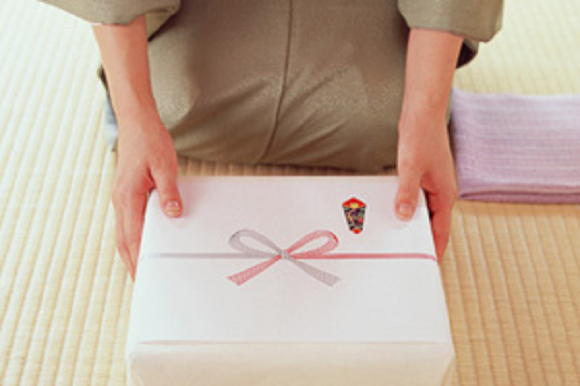
One of the trickier aspects of adapting to life in Japan is getting the hang of the numerous seasonal customs. While your acquaintances aren’t likely to get that bent out of shape if you miss a day or two, completely adhering to proper etiquette involves managing a year-round schedule of sending gifts and written salutations to friends, family, and business associates.
The sentiment is definitely admirable, but don’t Japanese people don’t find this all to be a huge hassle? Actually, it turns out some of them do, as shown in a poll of the top five seasonal traditions people in Japan would like to do away with.
【RocketNews24】10 things Japan gets awesomely right
Posted by Michelle Lynn Dinh (Shimane-ken, Chibu-mura, 2010–13), editor and writer for RocketNews24. The following article was written by Philip Kendall (Fukushima-ken, Shirakawa-shi, 2006–11), senior editor and writer for RocketNews24, a Japan-based site dedicated to bringing fun and quirky news from Asia to English speaking audiences.
At the end of our recent article listing the 10 things that we think Japan gets horribly wrong, we assured you that we’d be back soon to focus on some of the positives and introduce the things that we really, truly love about living in Japan. True to our word, we sat down and decided on what we as (mostly) foreigners most love about this great little collection of islands, and it turned out to be a lot of fun.
Although Japan is not without its faults, it is nevertheless an incredibly efficient and easy-to-live-in country, and we’ve discovered that there are numerous things that the Japanese get not just right, but awesomely right.
Join us after the jump for our top 10 things we love about Japan.
【RocketNews24】10 things Japan gets horribly wrong
Posted by Michelle Lynn Dinh (Shimane-ken, Chibu-mura, 2010–13), editor and writer for RocketNews24. The following article was written by Philip Kendall (Fukushima-ken, Shirakawa-shi, 2006–11), senior editor and writer for RocketNews24, a Japan-based site dedicated to bringing fun and quirky news from Asia to English speaking audiences.
It should come as no surprise to our readers to hear that we’re big fans of Japan. Pretty much everything here works as it should, the food is amazing, the culture rich, and people are on the whole likeable and friendly. But there are times when Westerners, and Japanese who have spent any amount of time abroad for that matter, realise that Japan gets some things not just wrong but horribly wrong. So join us after the jump as we redress the balance no doubt offset by our constant admiration of Japan by discussing the 10 little things that drive us nuts in this otherwise great country.
Omiyage and Gift Giving in Japan
Posted by Benjamin Martin, a JET from 2008-2013 in Okinawa, publisher of the blog MoreThingsJapanese.com and author of the award-winning YA fantasy series Samurai Awakening (Tuttle).
Do you like souvenirs? Do you collect trinkets? Maybe you love trying various foods that are unique to a town or area. If you do, Japan might be the place for you.
Gifts are (arguably) one of the central aspects of Japanese culture. For those of you that point to Christmas in western cultures, Hanukkah, or other massive gift exchanges as an argument against gifts being such a big deal, it comes down to perspective. For single-day gift giving Japan does not stand toe to toe with a pile of presents around a Christmas tree or a mass onslaught of birthday gifts. Yet, when I was a teacher on Kitadaito I got presents nearly every week. Once I received seven (yes 7) strawberry plants, for no reason at all. But then there are two major aspects to gift giving in Japan.
Omiyage
 Omiyage roughly means souvenir. Whenever a person goes anywhere in Japan, they generally buy a load of omiyage for their co-workers and family. For big trips this can sometimes be toys, figures, pictures, or anything that you might normally associate with souvenirs. More often its food. Japan has a massive industry around tourism. Almost anywhere you go in Japan has its own snack food that it’s ‘known for.’ There are almost always shops, small to large, that will sell the treats conveniently and individually wrapped and ready for you in a bag. In Okinawa, benimo (purple sweet potato tarts) are the most well known omiyage. In Kyoto there are various kinds of mochi, and on Kumejima we’re known for our Miso Cookies. Nagasaki is famous for Kastella Cakes, and most local places have unique omiyage for each location.
Omiyage roughly means souvenir. Whenever a person goes anywhere in Japan, they generally buy a load of omiyage for their co-workers and family. For big trips this can sometimes be toys, figures, pictures, or anything that you might normally associate with souvenirs. More often its food. Japan has a massive industry around tourism. Almost anywhere you go in Japan has its own snack food that it’s ‘known for.’ There are almost always shops, small to large, that will sell the treats conveniently and individually wrapped and ready for you in a bag. In Okinawa, benimo (purple sweet potato tarts) are the most well known omiyage. In Kyoto there are various kinds of mochi, and on Kumejima we’re known for our Miso Cookies. Nagasaki is famous for Kastella Cakes, and most local places have unique omiyage for each location.
Often, when teachers go on trips, they bring back a packet of cookies, tea, or other snacks for the break room. Sometimes teachers will bring back more personal gifts for people depending on where they went and why.
Other Gifts
Aside from omiyage gifts are given for weddings (cash), birthdays, funerals (cash), and other special events. Gifts are even given by new tenants to their neighbors (usually something useful, like a small towel, or food). These other gifts have their own customs for every situation. Cash for weddings should be new and in the proper envelope, while cash for funerals the money should be used, and in a different envelope. Aside from omiyage most presents are wrapped as well (even souvenirs are sometimes wrapped).
Reciprocal Gifts
In Japan it is usually appropriate to give a return gift of roughly half what you received for most occasions. The exceptions are omiyage and birthday presents, though usually you would return in kind if you go on a trip, etc. Even mourners will return small gifts of towels or rice coupons. This tradition is what makes gift-giving a cornerstone of Japanese Culutre. It is one of the foundations of polite Japanese society, and the reason for my new strawberry plants.
Reciprocal gift giving forms a kind of endless circle of ‘obligations’ that help to create relationships in a society where it is difficult to break down social barriers. When a new neighbor arrives and gives a small present, there is a unique opportunity for conversation. A return gift (though in this instance you are not required to give a return gift, it,s they way of saying ‘regard me kindly while I am living next to you’) is another opportunity. It goes deeper.
When you do someone a favor, they feel an obligation towards you, and want to return the favor. It creates a cycle that goes far beyond what most westerners are used to, usually in a good way. Sometimes when I make too much food, I’ll take some over to a friend’s or neighbor’s. Almost without fail I get something interesting in return. One might be tempted to take the cynical view: you are bribing someone for their friendship. But in Japan, it’s so ingrained that many people don’t even think about it, if they get something, be it a favor, food, or gift, they will return it.
I’m not sure what I did to deserve my new plants, but I made some banana bread as a thank you.
Originally published on MoreThignsJapanese.com
Goodreads Book Giveaway
Revenge of the Akuma Clan
by Benjamin Martin
Giveaway ends October 31, 2013.
See the giveaway details
at Goodreads.
I’ll Make It Myself!: Kitchen Library 2013.04.30 [Coffee Time]
L.M. Zoller (CIR Ishikawa-ken, Anamizu, 2009-11) is the editor of The Ishikawa JET Kitchen: Cooking in Japan Without a Fight. A writer, web administrator, and translator, ze also writes I’ll Make It Myself!, a blog about food culture in Japan; curates The Rice Cooker Chronicles, a series of essays by JETs and JET alumni on the theme of cooking/eating and being alone in Japan; and admins The JET Alumni Culinary Group in LinkedIn.
New Rice Cooker Chronicles submissions always welcome. Just e-mail it to jetwit [at] jetwit.com.
In this Kitchen Library: Coffee! (Non-coffee articles and recommended recipes next time!)
I’ll Make It Myself!: A Bento is Not As Big As the World
L.M. Zoller (CIR Ishikawa-ken, Anamizu, 2009-11) is the editor of The Ishikawa JET Kitchen: Cooking in Japan Without a Fight. A writer and web administrator for The Art of Travel, ze also writes I’ll Make It Myself!, a blog about food culture in Japan, and curates The Rice Cooker Chronicles, a series of essays by JETs and JET alumni on the theme of cooking/eating and being alone in Japan, and The JET Alumni Culinary Group in LinkedIn.
New Rice Cooker Chronicles submissions always welcome. Just e-mail it to jetwit [at] jetwit.com.
This is a companion piece to “‘Deeply Ingrained Advantages’: American Media Discovers Kyûshoku.”
At the same time as Japan’s school lunch programs got picked up by the media, there was a burst of articles about Japan’s other distinctive lunch: the bento.
Bento and the Cult of Cute
In the lead-in to Carlsen’s and Turner’s “In Japan, Food Can Be Almost Too Cute To Eat,” there is a slideshow showcasing the cuter side of Japanese food: tofu character goods, a kyaraben (character bento), and images of Anpanman in cartoon and pancake form.
I’ll Make It Myself!: Best of 2012
L.M. Zoller (CIR Ishikawa-ken, Anamizu, 2009-11) is the editor of The Ishikawa JET Kitchen: Cooking in Japan Without a Fight. A writer and web administrator for The Art of Travel, ze also writes I’ll Make It Myself!, a blog about food culture in Japan, and curates The Rice Cooker Chronicles, a series of essays by JETs and JET alumni on the theme of cooking/eating and being alone in Japan.
New Rice Cooker Chronicles submissions always welcome. Just e-mail it to jetwit [at] jetwit.com.
Happy New Year, everyone! 明けましておめでとうございます!
Since I bought my own domain name, I don’t get WordPress’s year-end stats for my site anymore, so I thought I would round up some of my most popular posts and my goals for next year as a 年末年始 (new year’s holidays; lit. year-end-year-beginning) exercise.




